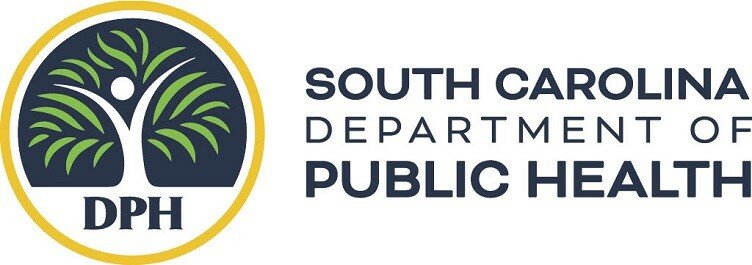DPH, SCDMH, DAODAS emphasize importance of mental health amid Hurricane Helene impacts
COLUMBIA – The South Carolina Department of Public Health joins the South Carolina Department of Mental Health (SCDMH) and the South Carolina Department of Alcohol and Other Drug Abuse Services (DAODAS) in emphasizing the importance of mental health while dealing with the wide-ranging impacts of Hurricane Helene and its aftermath.
In addition to posing physical health risks, natural disasters can affect the mental health of those impacted by storms and those assisting in response and recovery in a variety of unseen ways.
More than 200 people have lost their lives as a result of Hurricane Helene, including more than 40 South Carolinians, leaving many grieving the loss of loved ones.
“It cannot be lost on us that when we report the numbers of deaths, we are reporting on the loss of people who were fathers, mothers, sons and daughters,” said Dr. Edward Simmer, DPH interim director. “They were friends, neighbors, co-workers and helpers. We must remember that these people who have died are missed every day, and they have family and friends who love them and are deeply affected by their deaths.
“The grief they feel will extend long beyond the cleanup efforts are over, and their loved ones have our deepest respect and sympathies.”
DPH, SCDMH and DAODAS encourage South Carolinians to take the following steps to help protect their mental and emotional health:
• Take breaks from watching, reading, or listening to news stories and social media. Hearing about Hurricane Helene or other stress-inducing issues repeatedly can be upsetting.
• Take care of your body: eat healthy, well-balanced meals; exercise regularly; get plenty of sleep; and avoid alcohol and drugs.
• Make time to unwind and participate in activities you enjoy.
• Connect with others. Talk with people you trust about your concerns and how you are feeling.
• Don’t be afraid to reach out for help. It is OK to need assistance to stay mentally healthy.
“The need for support doesn’t end when the storm passes, and you don’t have to do this by yourself,” said Robert Bank, SCDMH acting state director. “Many of us – our family, friends, and neighbors – will need ongoing help to emotionally recover from this devastating event. SCDMH’s unified system of care is fully functional and ready to help. If you or someone you know needs support, please contact your local mental health center, our statewide mobile crisis line, call or text 988, or utilize one of our anonymous, online screeners or the no-cost Hopeful Minds platform.”
“In addition to these resources, SCDMH’s First Responder Support Team https://www.scdmh.org/services-and-programs/first-responder-support-team/ is available to help those who remain in the field helping others. If you need us, please reach out. We’re here for you as long as you need us.”
DMH’s statewide Community Crisis Response and Intervention line is available to anyone experiencing a mental health crisis 24 hours a day, seven days a week, toll-free, at (833) DMH-CCRI (833-364-2274). Its community mental health centers statewide are also open and accepting new patients, with no referral needed. To find the center closest to you, visit scdmh.org. For additional resources, visit scdmh.org/resources.
“The emotional toll of events like this can't be diminished,” said Sara Goldsby, DAODAS director. “It is expected that everyone may be feeling some effects of the hardship and loss our state is experiencing. Taking time to address the mental and emotional impact of this disaster is equally important in the overall recovery effort. We want everyone to know that it's okay to reach out for support.”
In addition, the Substance Abuse and Mental Health Services Administration’s (SAMHSA) Disaster Distress Helpline provides free crisis counseling and emotional support for those experiencing distress or other mental health concerns related to disaster 24 hours a day, seven days a week. Anyone experiencing emotional distress related to Hurricane Helene is encouraged to call or text the Disaster Distress Helpline at 1-800-985-5990.
If you or someone you know is struggling with their mental health, you can also call or text 988 or chat at 988lifeline.org. You can also reach the Crisis Text Line by texting MHA to 741741.
SAMHSA has shared these additional resources to address the behavioral health needs of survivors, responders, and all who are witnessing this tragedy:
• Coping Tips for Traumatic Events and Disasters | SAMHSA
• ISTSS_MassDisaterTraumaandLoss_English_FNL.pdf
• Helping Youth after Community Trauma: Tips for Educators | The National Child Traumatic Stress Network (nctsn.org)
• Helping Older Adults After Disasters: A Guide to Providing Support | SAMHSA Publications and Digital Products
• 11 NDIN TS - DisasterMentalHealth (n-din.org)
• Rural Disaster Behavioral Health: A Guide for Outreach Workers and Crisis Counselors | SAMHSA Publications and Digital Products
DPH Media Relations: media@dph.sc.gov or 803-898-7769
More Articles to Read

